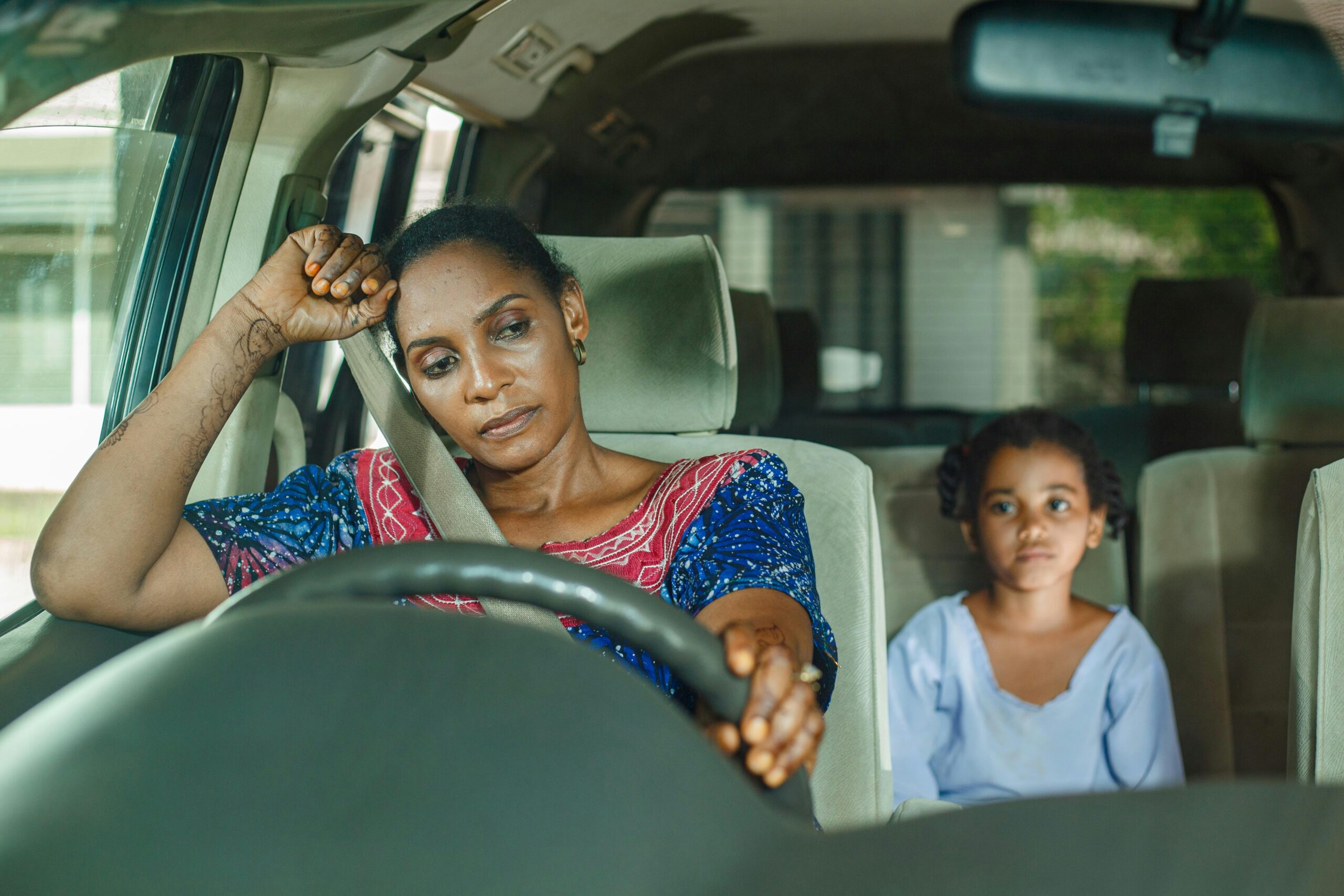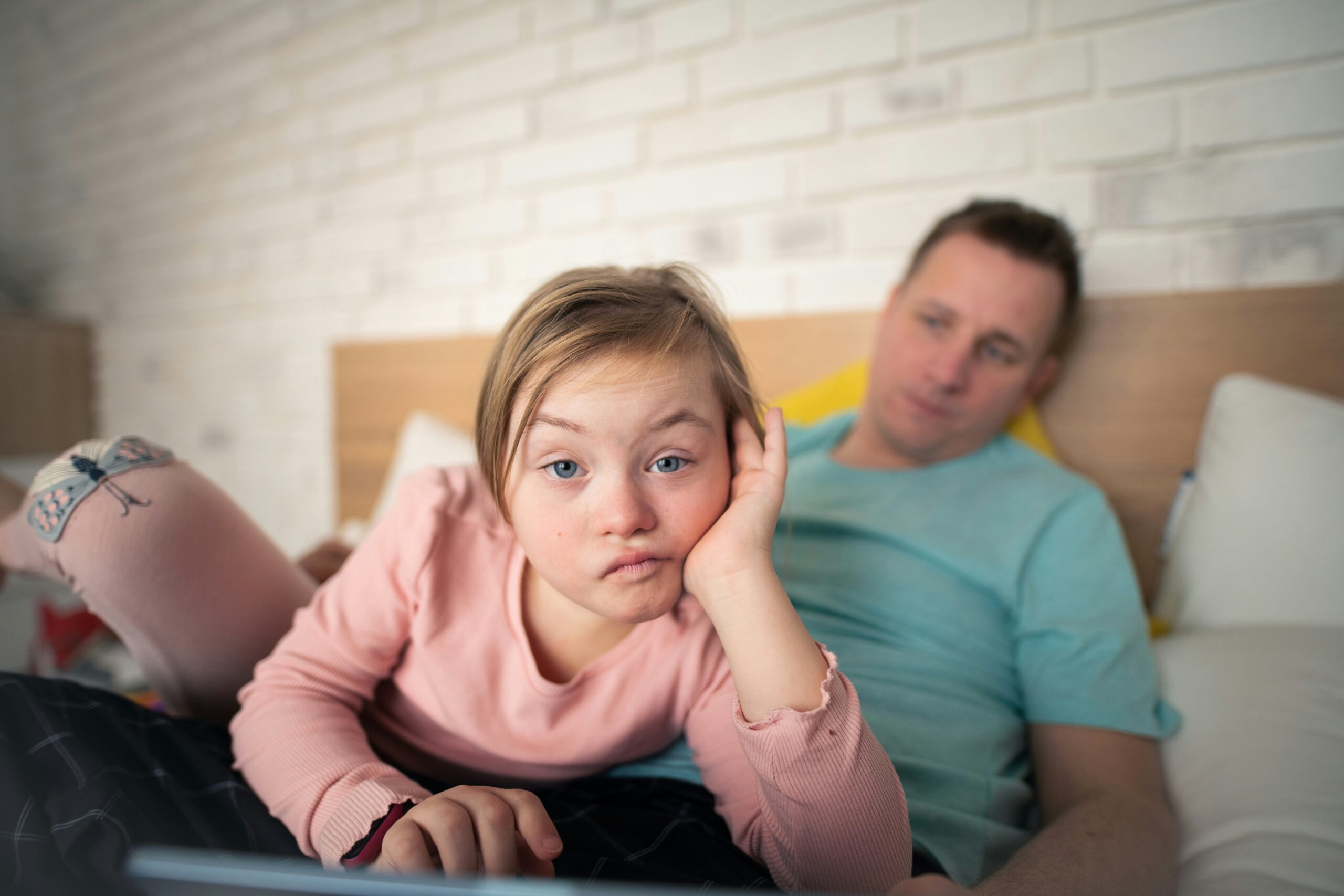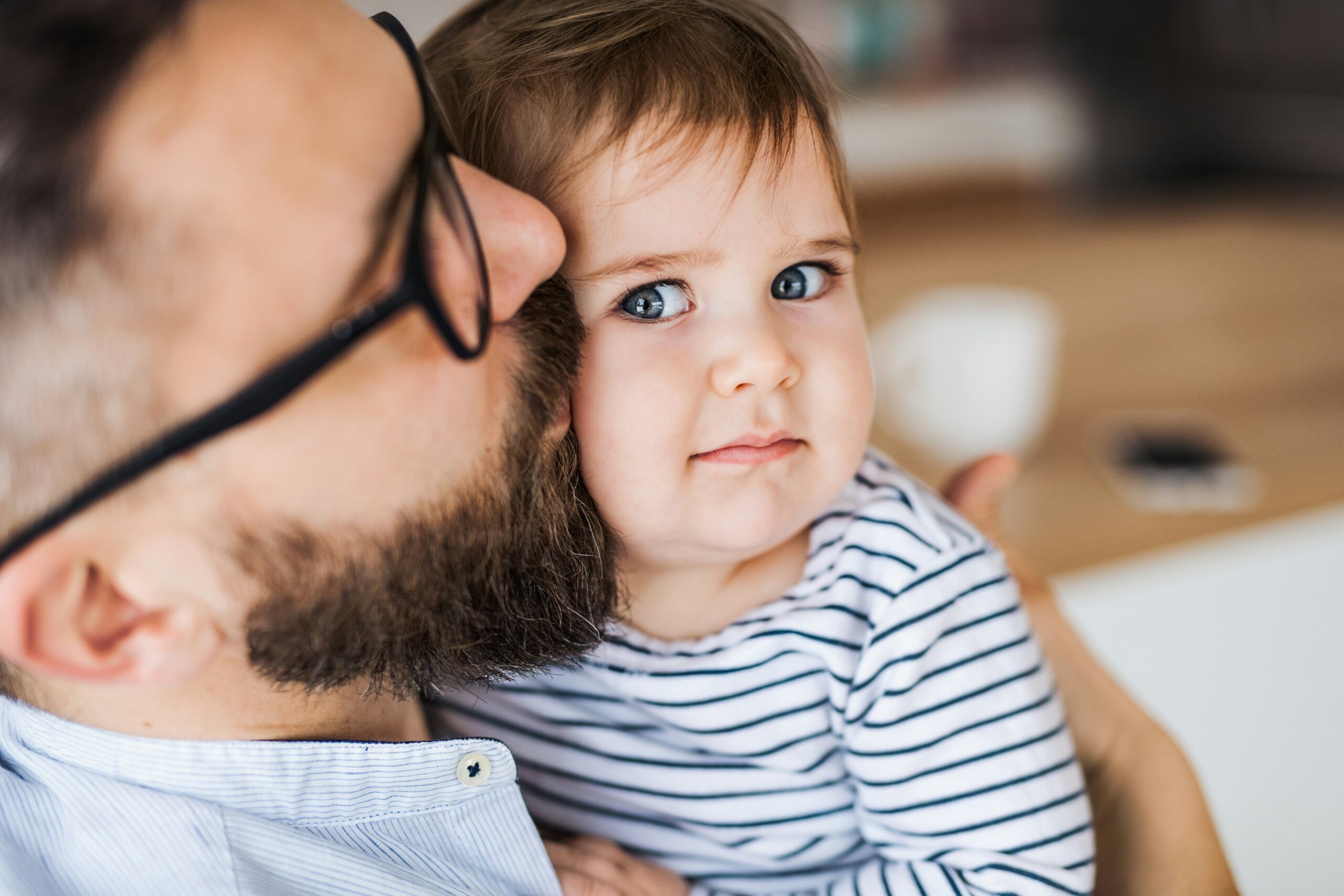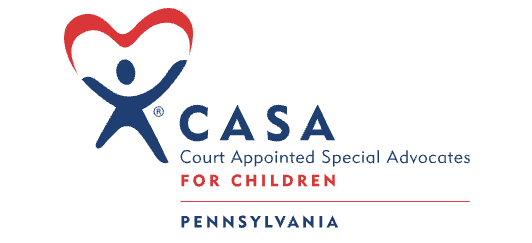Here’s a truth many people don’t realize before they become parents or work with children: Unaddressed trauma gets passed from person to person, like a virus, and if we aren’t paying attention, we can unintentionally spread our trauma to the children we love and care for.
Oof, I may have just dropped a hard reality on you, but I hope I can lay it out in a way that feels supportive instead of shameful (trauma responses thrive in the flood of shame).
When I learned the concepts I share in this article, it was a game-changer for me in my parenting journey. But these concepts are not only for parents and caregivers. They also apply to anyone who spends time with children, from counselors to coaches, teachers to social workers, and librarians to family attorneys.
Why Do Kids (Unintentionally) Trigger Us?
If you’re new here, you might not be familiar with the idea of becoming triggered while parenting or working with kids, so here is how I explain it:
If, as a child, you had basic needs that were denied, invalidated, shamed, ignored, or if your needs caused an unpredictable, angry/scary reaction from your caregivers, you may unknowingly enter a trauma response when children demand similar needs be met.
For example, I had a client several years ago who was frequently losing her temper with her kids. She was able to recognize in our sessions that her outbursts were disproportionate to her children’s behavior, but still, their non-compliance sent her into a rage of screaming that she hated herself for.
I could see that the shame spirals she went into after a rage also made her feel depressed and anxious around her children, which only exacerbated her short fuse. Her fear of losing her temper became a reason to avoid spending time with her kids, which was beginning to impact their attachment to her. To put it bluntly, this family was falling apart.
During one session, she had tears rolling down her face as she shared about a recent outburst where she told her son she hated him.

This parent was suffering so much, and it was painful to watch because she was a good mom who loved her children dearly. I was sure of that. As a quiet moment in between sobs arrived, I looked at her with tears in my eyes and said, “I wonder who wouldn’t listen to you when you were a child. I wonder who you’re really angry at, because I know it’s not your children.”
I won’t share what she said next because it’s too personal, but it was a moment of realization that changed her relationship with herself and her children forever.
Following our work together, she now understood that her angry reactions weren’t caused by her children; they were caused by her trauma. This trauma was not her fault. But, as a parent, it was her responsibility to work through it and stop channeling it towards her children.
If this story sounds familiar or hits a nerve, I get it. I’ve been an angry parent before, too. I’ve never reached the level of anger this mother had, but there are things I definitely regret as a mom, and I can empathize with how lost she felt.
But, here’s what we need to remind ourselves of:
Perfect caregivers don’t exist for a reason.
We are designed to suck at parenting (sometimes) so that our children learn that nobody is perfect, and we all make mistakes.
I want you to stop reading this and imagine for a moment what it would be like to be raised by a parent or caregiver who never made a mistake. Think about what that would really be like for you. Imagine the pressure that could put on the child to be perfect in their own life.
Growth, Not Perfection
The key to raising healthy children and breaking the cycle of trauma is learning how to repair the relationship after a breach and developing the self-love to forgive ourselves for our f-ups so we can have fewer of them. The goal is to reduce the frequency and intensity of the outbursts and other mistakes, not eliminate them.

How to Know If You’re Triggered
Getting upset or frustrated with children is natural. Not all negative interactions are because of a trauma response. But because childhood trauma is so pervasive across cultures and time, triggers could be impacting your relationship with the children you care about more than you realize.
Part of the problem is that most of us don’t recognize a trigger in the moment. It often sounds like:
- “I snapped out of nowhere.”
- “I sounded just like my parent/caregiver, and I hated it.”
- “My body took over before my brain could catch up. I lost control.”
Here are some of the signs that you’re not just upset, you’re triggered:
- Your reaction feels way bigger than the situation or behavior at hand.
Ex.) A 7-year-old child spills a cup of milk, and your heart starts racing. You yell at them for spilling their milk (again), and you don’t feel like you can stop yourself. You keep going on and on, threatening that if they do it again, they won’t be allowed to drink milk anymore.
Later, you think, “I really overreacted today when the juice was spilled. Why did that set me off so much? It must be because I’m a terrible person.”
Another hard truth:
Sure, kids making a mess is bothersome, but it wasn’t just about the milk. It was likely a learned response from how adults reacted to your mistakes when you were a child, in addition to other life stressors, lack of sleep, etc. We tend to repeat what we don’t address.
The good news is, when we get curious about what sets us off, we can begin to heal the wounds of our childhood.
- Your body is in fight, flight, freeze, or fawn.
Look for physical clues:
- Tight fists, red face, yelling, shallow breathing (fight)
- Urge to leave the room, shut down, or scroll (flight/freeze)
- Over-apologizing, giving in, or avoiding conflict (fawn)
You might feel like you’re the child again. Scared, angry, or out of control.
- You’re flooded with shame or guilt afterwards.
Many parents don’t recognize they were triggered until after the storm passes. If you find yourself thinking:
- “I’m ruining them.”
- “I’m a terrible mom/dad.”
- “Why can’t I control my anger/fear?”
That’s a cue to look beneath the surface. These are symptoms of being triggered while parenting or working with children.
- You think it’s ok to yell at or hit children because your parents did it to you as a child, and you turned out “just fine.”
When people defend harmful parenting practices by pointing to their own upbringing, it’s often a defense mechanism rooted in trauma. It can be both a survival narrative (“If I get in touch with my deeper feelings about this, I’ll lose everything”) and a subconscious form of identifying with the abuser (“If I do what they did, maybe I’ll feel strong too”).
Compassionately naming this dynamic opens the door to healing, not through shame, but by helping them see that “fine” might actually mean “adapted, but at a cost.”
- You feel an intense need to shut down the child’s behavior immediately. You might say things like:
- “Stop it right now!”
- “Because I said so!”
- “You’re going to make me lose it!”
This urgency often stems from a past where you had no control, and now your brain equates your child’s autonomy with danger or rejection.
Gentle Reframe: Triggers are Invitations to Heal Your Past

Being triggered doesn’t mean you’re a bad parent. It means your nervous system is trying to protect you using an old survival code. Your response is not your fault, but it is your job to update the system.
The only thing you can control is yourself. You can pause. You can breathe. You can walk away for a moment to get your head straight. You can come back and say, “ I don’t like how I acted earlier, I’m sorry. Can we start over?”
Recognizing your triggers is a superpower. It gives you your REAL power back and stops you from repeating the pattern of harm in your family.
Conclusion
I’d love to hear what you think of these ideas, so please e-mail me or share your thoughts in the comments. It helps me stay motivated to write these blogs for you.
Parenting will always come with mess and mystery, but being triggered means there’s a story beneath the surface asking to be heard. Each time you pause, express, reflect, or repair, you’re doing something revolutionary. You’re becoming the interruption in the cycle of trauma, and that, my Trauma Champions, is how healing begins!
_____________________________________________________________________________________________________
What’s Happening at Beth Tyson Trauma Consulting?

____________________________________________________________________________________________________
Exciting Update: The Strengthening Connections Curriculum

Over the last year, I’ve been working closely with Pennsylvania CASA to create the Strengthening Connections curriculum, an online learning experience designed to help PA CASA find and strengthen relationships for children in foster and kinship care.
Using the latest tools and technology in child welfare, along with trauma-informed child engagement, PA CASA volunteers are already finding long-lost family members for children in care!
I met with the co-hort last week to do a live training of the activities for child engagement, and the success stories they shared had me in chills!
Since participating in the Strengthening Connections training in June, a CASA volunteer, who advocates for a teen who thought she had no biological family, was reconnected with an older brother who was looking for her. Chills!
Another CASA manager shared that her office went from 8 potential connections to over 150 connections following participation in the Strengthening Connections training. Mic drop!
With the help of the Strengthening Connections process, CASA volunteers are expanding their role and stepping in to support case managers on their search for family and fictive kin, a process that often gets put on the back burner due to the many stressors case managers are juggling.
I am grateful to partner with CASA to equip volunteers with both connection-based strategies and trauma-informed care for children, because both are essential to lasting impact.
_______________________________________________________________________________________________
Let’s Work Together
👉 What is your organization doing to increase belonging and connection for children (the true healer of trauma)? Maybe you need a trauma-informed curriculum to strengthen connections!
I specialize in helping CASA organizations (and others) prevent and reduce trauma to children using my expertise as a CASA volunteer and trauma therapist for children in care.
Please reply to this e-mail or contact me at info@bethtyson.com to set up a time to discuss my curriculum and training for your staff.
_______________________________________________________________________________________________________
Trauma Champion of the Month

Dr. Angela Tobin, Kinship Caregivers Connect
My friend and colleague, Dr. Angela Tobin, is doing incredible work to support kinship families. She recently published research on the impact of technology use on kinship families during COVID-19, which she asked me to share with all of you.
From her website: Angela Tobin OTD, OT/RL is passionate about facilitating community and peer-led supports for kinship families. With a background in occupational therapy and educational psychology, Angela has taken an interdisciplinary and holistic approach to supporting kinship families.
She founded Kinship Caregivers Connect in June of 2020, bridging her personal experiences in kinship care with knowledge from research to create a safe and much-needed space for caregivers through support groups. She also has over 5 years working as a researcher in the field of kinship care with a specific interest in peer supports and kinship caregiver well-being. Dr. Tobin’s interest in working with kinship families stems from her own family, as she witnessed her both her grandparents and parents raise her cousin (their grandson/nephew).
Angela also has a free webinar on YouTube called “Kinship Families: Unique Strengths and Needs,” which I think many of you will find helpful.
______________________________________________________________________________________________________
News from the Field:
- “Supervised visitation is an underutilized opportunity to support the maintenance and development of parent–child connections and mitigate the trauma of separation. Yet, few interventions are aimed at supporting parents in the unique context of supervised visitation (Fischer et al., 2020, Smith et al., 2014). Also lacking are training, guidance, and support for visit supervisors charged with monitoring and reporting on these visits (Zilberstein, 2023).”
This is exactly why I published my new children’s book, Sullivan Goes to See Mama: A Story to Help Children Navigate Supervised Visitation. Read the full research article HERE.
***I offer specialized training on this topic, and would love to bring it to your organization. Please reach out to me to plan your next professional development workshop on healing-centered supervised visits for children in out-of-home care.
_______________________________________________________________________________________________________
In Closing…
When our children’s pain awakens our own, it can feel like a storm we aren’t strong enough to stand in. But each moment of awareness is proof that we are breaking cycles that were never meant to continue. You are not failing when you’re triggered; you are noticing. And in that noticing, there is room for repair, for choosing differently, and for teaching a child that even in the hardest moments, love can find its way back to center. This is the slow, courageous work of healing, one brave return to connection at a time.




